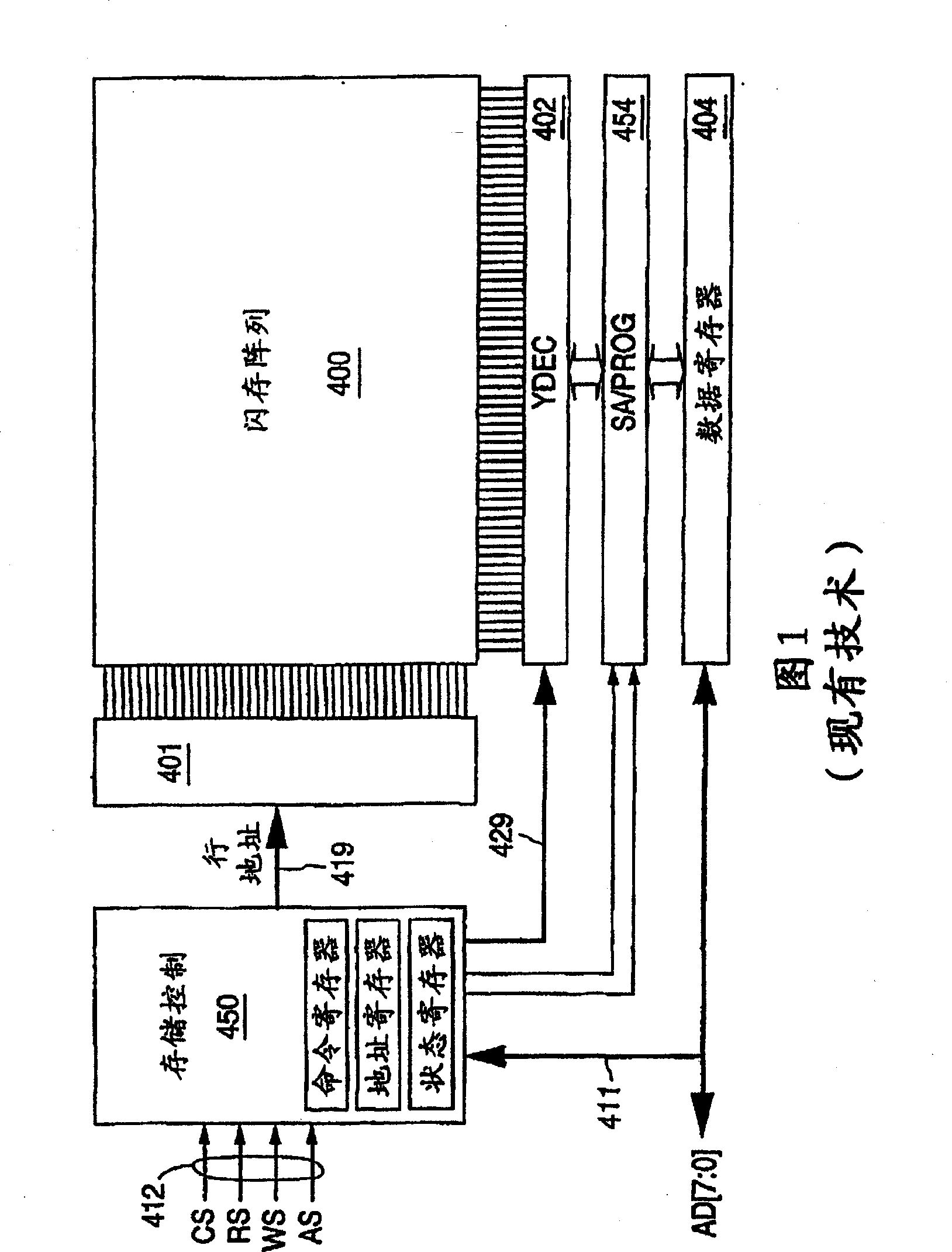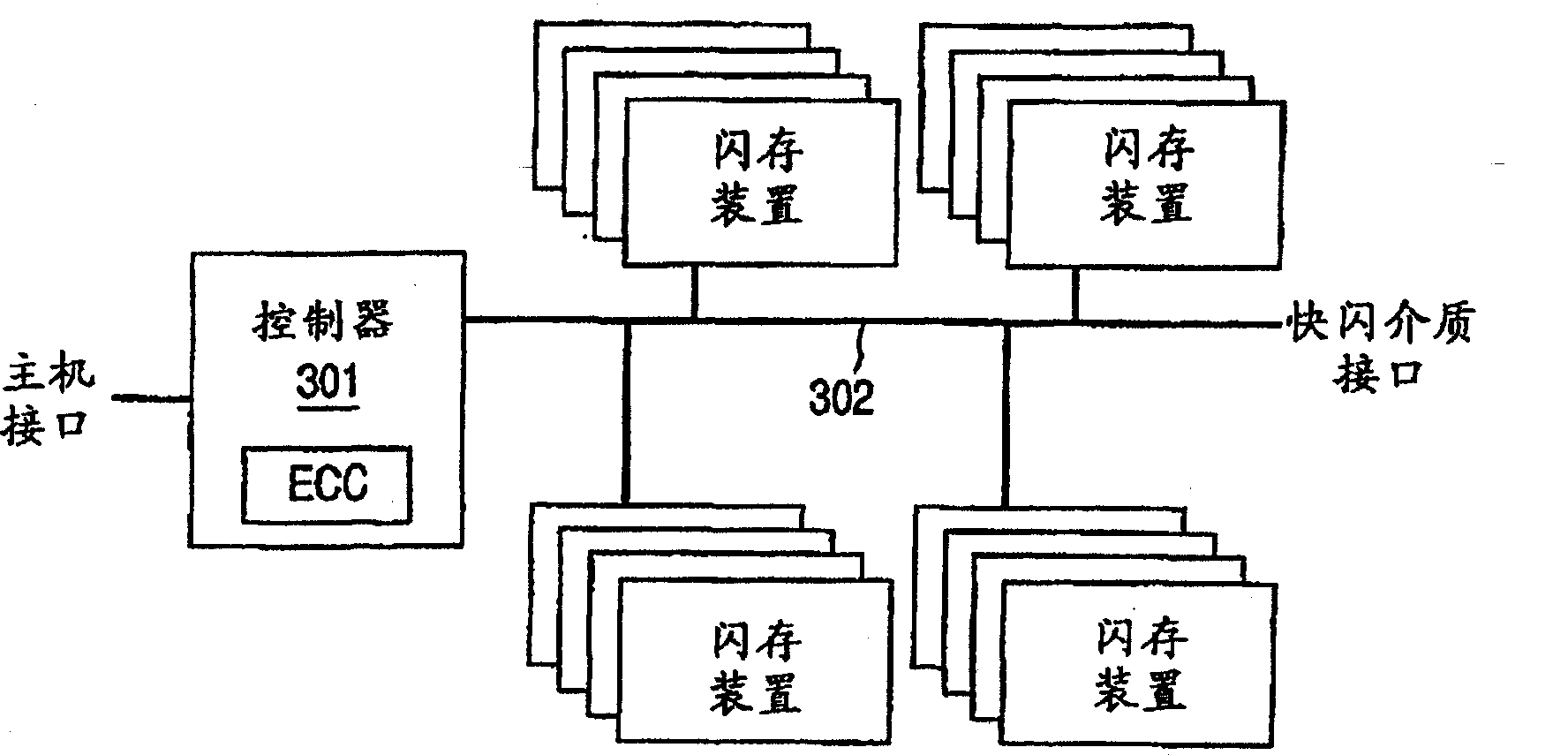Non-volatile memory system and method for programming and reading update data
A non-volatile storage and storage system technology, applied in the field of data storage systems
- Summary
- Abstract
- Description
- Claims
- Application Information
AI Technical Summary
Problems solved by technology
Method used
Image
Examples
Embodiment Construction
[0031] [Description of existing large block management technology]
[0032] FIG. 1 shows the internal architecture of a typical flash memory device. The main components include: an input / output (I / O) bus 411 and control signals 412 for interfacing to an external controller; a memory control circuit 450 for controlling internal memory through registers for command, address, and status signals operate. Also included is one or more flash EEPROM partitioned arrays 400, where each array has its own row decoder (XDEC) 401 and column decoder (YDEC) 402, a set of sense amplifiers and program control circuitry (SA / PROG) 454 and data register 404. Currently, memory segments typically include one or more conductive floating gates as storage elements, but other long-term electronic charge storage elements may be used instead. Memory cell arrays can operate with two charge levels defined for each storage element, using each element to store one bit of data. Optionally, more than two s...
PUM
 Login to View More
Login to View More Abstract
Description
Claims
Application Information
 Login to View More
Login to View More - R&D
- Intellectual Property
- Life Sciences
- Materials
- Tech Scout
- Unparalleled Data Quality
- Higher Quality Content
- 60% Fewer Hallucinations
Browse by: Latest US Patents, China's latest patents, Technical Efficacy Thesaurus, Application Domain, Technology Topic, Popular Technical Reports.
© 2025 PatSnap. All rights reserved.Legal|Privacy policy|Modern Slavery Act Transparency Statement|Sitemap|About US| Contact US: help@patsnap.com



